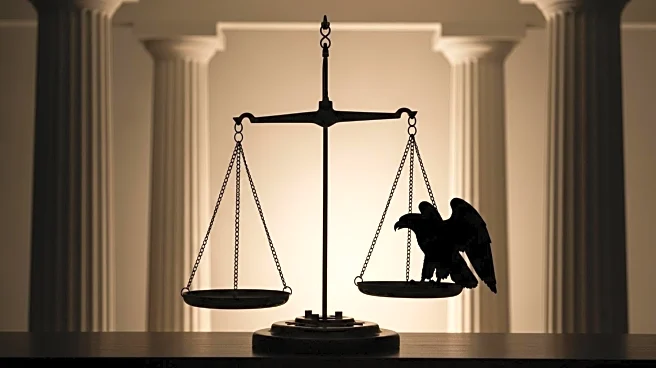What's Happening?
The U.S. Supreme Court appears to be moving towards endorsing the unitary executive theory, which advocates for expanded presidential control over the executive branch. This theory, which has gained traction among conservative legal scholars, suggests that the president should have the authority to direct and remove executive branch officials at will. Recent actions by President Trump, including the firing of several federal officials and attempts to shut down agencies, align with this theory. The Supreme Court's potential endorsement could significantly alter the balance of power within the federal government.
Why It's Important?
If the Supreme Court officially endorses the unitary executive theory, it could lead to a substantial increase in presidential power, allowing the president to exert greater control over federal agencies and their operations. This shift could impact the independence of regulatory bodies and alter the functioning of the federal government. Critics argue that such a move could undermine democratic principles by concentrating power in the executive branch, while supporters believe it could streamline government operations and reduce bureaucratic inefficiencies.
Beyond the Headlines
The potential adoption of the unitary executive theory raises concerns about the erosion of checks and balances within the U.S. government. It could lead to increased politicization of federal agencies and diminish their ability to operate independently. The long-term implications of this shift could affect the regulatory landscape, public policy, and the overall governance structure in the United States.









